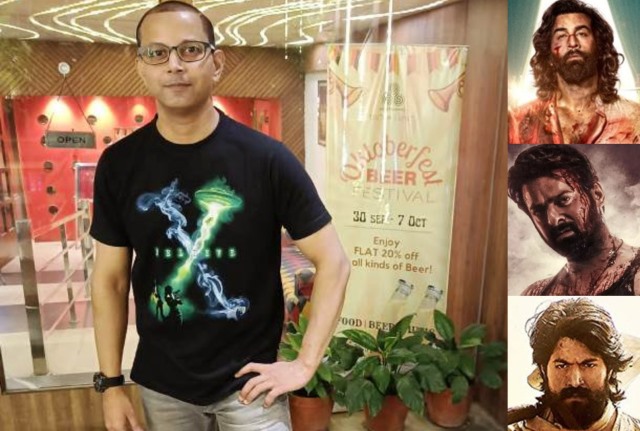Sameer Sharma, a medical professional, delves into the patriarchal mindset of the audiences that make films like Animal, Salaar and KGF a roaring success. His views:
Patriarchy is not alien to our society, never has been. We have all witnessed it manifest in various forms during our formative years. Male chauvinism has its cultural roots in our society since eons and we have seen its unfettered acceptance from one generation to the other.
Similarly, our mainstream media is not far behind in inherently portraying this vice in daily soaps on television, commercials of consumer goods as well as cinema. The naked display of violence, misogyny, profanity and male chauvinism in our movies has been taken to another level in some of the most recent Bollywood releases like ‘Animal’, ‘Salaar’ and ‘KGF’ to name a few. The passion with which people have accepted and appreciated this brute display of bestiality is reflective of our society which takes pride in being violent, impatient and contemptuous.
These kind of movies create an adverse effect on impressionable minds, especially our youth. The younger generation often get inspired by what they see in movies and on OTT platforms. They try to emulate various characters shown in the movie and somewhere lose their own identity in the process. The negative influence is far greater than one can imagine. In some cases, these young individuals resort to serious crimes where women are involved and some heinous instances are quoted as being taken from a film that perpetrated and glorified such violence. The hero is worshipped no matter what. He is emulated and the common man is struck by the belief that the screen hero is a demi god and does everything right. The false belief and warped notions on behaviour with women result in a convoluted society.
ALSO READ: ‘Movies Like Animal Glorify Violence & Patriarchy’
Today, everyone has access to all kinds of stuff especially films. It is easy courtesy access to a mobile phone, a tablet, a laptop and a high speed internet connection which is readily available everywhere. Violence against women and children has increased manifold in the recent years and it’ll be fair to say that the kind of media content our youth is consuming create an adverse effect on their mind which often result in such incidences. The lackadaisical attitude of our society to address this issue is bewildering to say the least. We have knowingly or unknowingly normalized violence, misogyny, narcissism and indifference which is pushing our youth towards a sort of psychotic and insane behaviour with a criminal and devilish mindset. And that is precisely what these films glorify. When we convey and portray evil, we harvest evil. What you see, imbibe and take in, makes you what you are.
There is always a silver lining to every black cloud. The hope to see enlightened individuals admonish this archaic behaviour is not distant. There is a need to address this vile obsession to treat women and the underprivileged with contempt. As long as we condone what’s happening now within our society, we will never be able to address the elephant in the room. Change is imminent.
As told to Deepa Gupta
For more details visit us: https://lokmarg.com/

